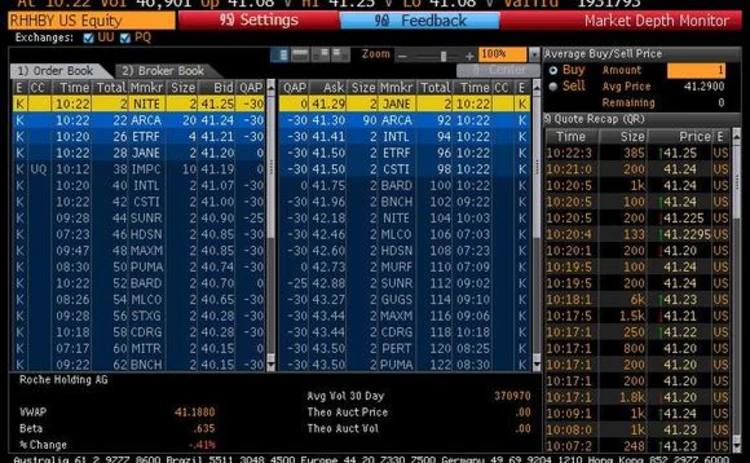GreySpark Study Yields Pre-Trade Risk Best Practices

According to GreySpark, the paper ─ Best Practices in Pre-trade Risk Controls 2014 ─ provides banks with a guide that enables them to develop and implement barriers surrounding their e-trading systems in order to prevent similar situations to the Knight Capital fiasco on the August 1, 2012, when the New York-based market maker suffered losses of some $440 million due to the accidental release of test software code into its production environment.
The consultancy claims that investment banks are taking on increased levels of risk during the course of their business as they look to move into new markets and asset classes, even though the complexity of electronic trading systems continues to rise. Recent examples of malfunctions within e-trading execution platforms like those that affected Knight Capital, and the Flash Crash of May 6, 2010, which saw the Dow Jones Industrial Average lose approximately 1000 points (9 percent) only to recover those losses within minutes, highlight the need for better risk controls ─ specifically on a pre-trade basis ─ which the report focuses on.
Checklist
The study, published on August 8, provides tier-I and tier-II sell-side firms with what it calls a "checklist-like set of controls that can be tailored to the specific requirements of different types of sell-side institutions."
The firm's recommended pre-trade risk controls include details about the design and implementation of execution platforms, guidelines on managing pre-trade risks associated with both sell-side capital markets agency flow businesses and principal flow businesses, and reviewing how risk limits should be implemented across multiple, independent pre-trade components utilized by both models. It also explores sell-side pre-trade risk industry best practices and explains how such controls can be applied to order flow risks within banks. GreySpark insists that the majority of banks can adopt these pre-trade risk controls with only minor modifications to their technology stacks.
The paper provides banks with a guide that enables them to develop and implement barriers surrounding their e-trading systems in order to prevent similar situations to the Knight Capital fiasco.
Only users who have a paid subscription or are part of a corporate subscription are able to print or copy content.
To access these options, along with all other subscription benefits, please contact info@waterstechnology.com or view our subscription options here: https://subscriptions.waterstechnology.com/subscribe
You are currently unable to print this content. Please contact info@waterstechnology.com to find out more.
You are currently unable to copy this content. Please contact info@waterstechnology.com to find out more.
Copyright Infopro Digital Limited. All rights reserved.
As outlined in our terms and conditions, https://www.infopro-digital.com/terms-and-conditions/subscriptions/ (point 2.4), printing is limited to a single copy.
If you would like to purchase additional rights please email info@waterstechnology.com
Copyright Infopro Digital Limited. All rights reserved.
You may share this content using our article tools. As outlined in our terms and conditions, https://www.infopro-digital.com/terms-and-conditions/subscriptions/ (clause 2.4), an Authorised User may only make one copy of the materials for their own personal use. You must also comply with the restrictions in clause 2.5.
If you would like to purchase additional rights please email info@waterstechnology.com
More on Emerging Technologies
Market participants voice concerns as landmark EU AI Act deadline approaches
Come August, the EU’s AI Act will start to sink its teeth into Europe. Despite the short window, financial firms are still wondering how best to comply.
Ram AI’s quest to build an agentic multi-strat
The Swiss fund already runs an artificial intelligence model factory and a team of agentic credit analysts.
Fidelity expands open-source ambitions as attitudes and key players shift
Waters Wrap: Fidelity Investments is deepening its partnership with Finos, which Anthony says hints at wider changes in the world of tech development.
Fiber’s AI gold rush risks a connection drop
In search of AI-related profits, investors flocked to fiber cables, but there are worrying signals on the horizon.
JP Morgan gives corporates an FX blockchain boost
Kinexys digital platform speeds cross-currency, cross-entity client payments.
BlackRock further integrates Preqin, Nasdaq and Osaka Exchange partner, and more
The Waters Cooler: SGX remodels data lake, ICE seeks tokenization approval, TNS closes Radianz deal, and more.
ICE to seek tokenization approval from SEC under existing federal laws
CEO Jeff Sprecher says the new NYSE tokenization initiative is not dependent on the passage of the US Clarity Act.
Waters Wavelength Ep. 346: TS Imagine’s Andrew Morgan
This week, Andrew Morgan of TS Imagine talks with Wei-Shen about how fixed income trading behavior is changing.








